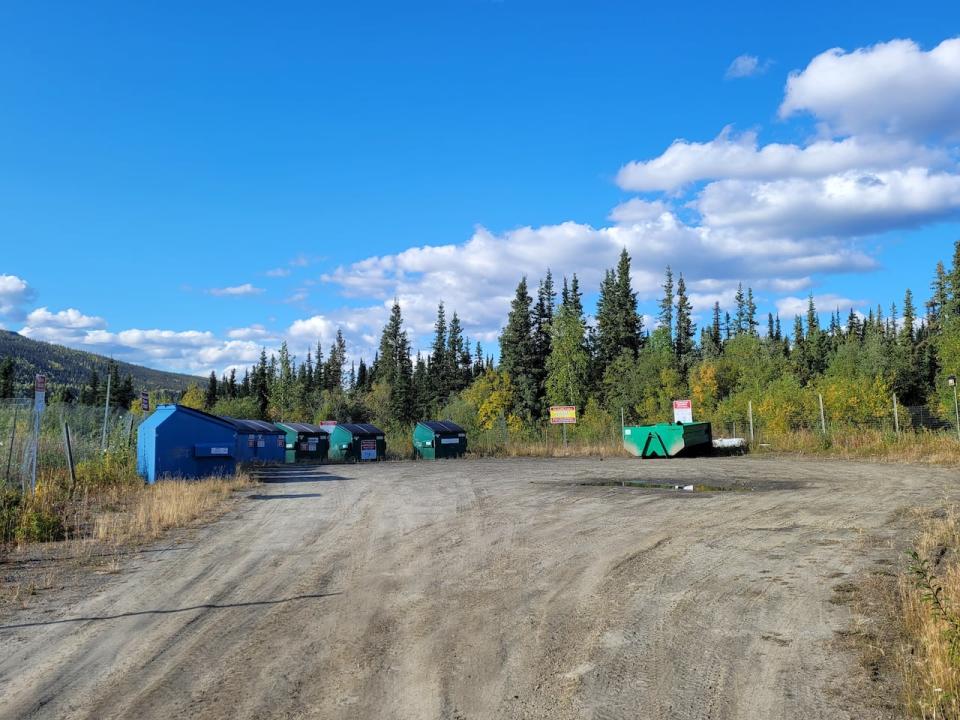Future of some rural Yukon waste transfer stations still up in the air
Some people in Yukon's unincorporated communities say they feel the territorial government is not hearing them, as it works to overhaul solid waste services in the territory.
Part of the territory's modernization plan for waste management entails closing rural transfer stations in Keno City, Braeburn, Johnson's Crossing and Silver City, to direct more money and resources to hiring employees and improving services at dump sites in larger jurisdictions.
The government recently released a report summarizing feedback officials heard during public engagement sessions with residents living in those four communities.
Dave Albisser, director of community operations with the Department of Community Services, said the some of the feedback focused on issues like wildlife, seasonal tourists, and illegal dumping.
He also said the main thing many people want is for the government to keep the rural waste transfer stations open.
The report also outlined waste disposal options once the transfer stations are closed, such as bear-resistant garbage containers, or incinerators for on-site waste disposal.
Albisser said officials are now reviewing the feedback to determine the best way to move forward.
"I don't want to jump to any conclusions. The final decision hasn't been announced, and we are ensuring that the feedback is fully considered and we're still exploring that, and we'll announce a final decision in the coming weeks," he said.
'They didn't seem to want to listen'
Destruction Bay residents Suzanne Tremblay and her husband Charles Eikland said they feel the government's consultation report is nothing more than a "box-checking exercise."
They said that consultation between the government and residents of Destruction Bay was very limited. Eikland feels that officials came to the community to tell people what was happening, not ask for their feedback.
"It's almost like it was kind of arrogance, because they had their mind made up," said Eikland. "They wouldn't listen to common-sense solutions and that's a part of the problem, is they didn't seem to want to listen."
Tremblay echoed her husband's feeling.
She said for years residents of Destruction Bay and other unincorporated communities have been saying that removing the dump sites that unincorporated communities use isn't going to reduce costs, or environmental impacts for anyone. She said it'll only create more.
She said instead of driving a few kilometres to drop garbage off at the Silver City waste transfer station, Destruction Bay residents will now be forced to drive an hour to Haines Junction to dispose of garbage.

"The major cost of all of the waste management in the Yukon comes from Whitehorse and the population growth," Tremblay said. "Not Destruction Bay, and Keno. They're making it cost more."
Keno City resident Amber Smith also has an issue with the timing of the government's consultation report, as the dump site in her community has already been shut down.
"We feel frustrated that we are the only community that has had this happen to them. And my impressions of that whole report is that it's a whitewash," Smith recently told CBC News.
Albisser said he is grateful for everyone who provided their feedback during the consultation process.
He said once a final decision is made, officials will return to the communities to once again gather feedback on the decision.
"I think the conversations were productive," Albisser said.
"We are working hard to improve how waste is managed in the territory. We're moving forward with the regional-ization plans and looking to finalize that whole approach over the next coming years."


